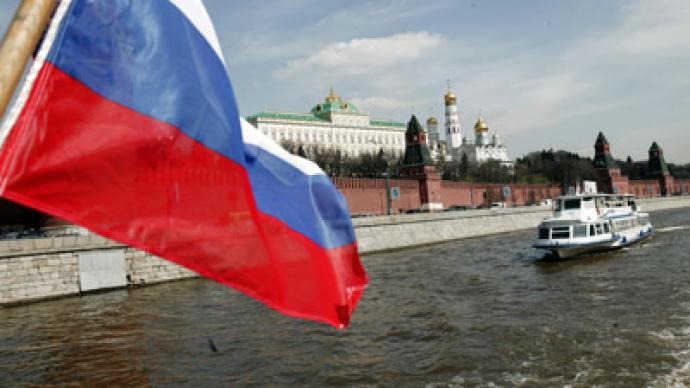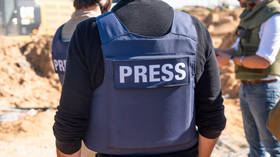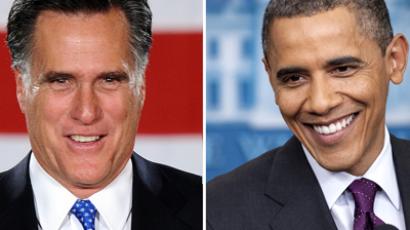Putin agrees: USAID meddling in Russian politics

President Vladimir Putin shares the opinion of the Foreign Ministry that the United States Agency for International Development (USAID) is engaged in more than just humanitarian work in Russia.
Foreign Ministry spokesman Alexander Lukashevich on Wednesday said Russia decided to order the closure of the USAID office after concluding it provided funds for non-government organizations that seek to "influence the political process, including elections at various levels and civil society."President Putin has an “identical position" on the question of the US agency’s political activities in Russia, presidential spokesman Dmitry Peskov told reporters on Thursday.The Moscow office of USAID has until October 1, 2012 to comply with the Russian government’s request.The decision, coming at the height of the US presidential election season, has attracted heated criticism from both US Democrats and Republicans, who are politicizing every new development in an effort to win the White House in November.In a telling article in The Washington Post on Thursday, USAID’s humanitarian work – the organization has spent around $2.7 billion in Russia over the last 20 years – was barely mentioned. Instead, the bulk of the missive was devoted to vilifying the Russian President.“A clear condemnation of Putin’s actions is necessary out of principle and to show support to those brave Russians who are fed up with authorities’ rampant corruption, abuses and heavy-handed tactics,” wrote David J. Kramer, president of Freedom House. “The U.S. government should make clear that support remains unchanged for Russian non-governmental organizations (NGOs).”Aside from failing to mention that Putin enjoys high popularity ratings, and that the protests are a marginal phenomenon at best, the author chastised Russia over its new “foreign agents” law, which requires Russian NGOs to disclose how they are using funds received from abroad. Nowhere in the Washington Post article is it mentioned, however, that the United States has had its own “foreign agents act” (FARA) since 1938.According to the US Department of Justice website; “FARA requires persons acting as agents of foreign principals in a political or quasi-political capacity to make periodic public disclosure of their relationship with the foreign principal, as well as activities, receipts and disbursements in support of those activities.Disclosure of the required information facilitates evaluation by the government…in light of their function as foreign agents.”Since Russia is not funding election monitoring organizations on the territory of the United States, as USAID did with the Russian-based Golos, there remained the nagging suspicion that Russian NGOs were being used as a political tool to turn the screws on Russia’s political machinery. This suspicion only increased following last year’s protests, which President Putin blamed on US Secretary of State Hillary Clinton. Putin said Clinton "gave them a signal, they heard this signal and started active work."Now, diplomats are working overtime to smooth over the issue before it gets out of hand."Hopefully, a mutually acceptable formula (concerning the foreign funding of NGOs) will be found during meetings of our foreign political departments. I stand for equal representation," Russian Human Rights envoy Vladimir Lukin told Interfax on Thursday. Lukin then noted that "USAID is a component of the US Department of State, and the way the U.S. Department of State is represented in Russia and the way the Russian Foreign Ministry is represented in the US is a matter of agreements and negotiations between the countries at large." In an interview with RT, Sergey Markov, political analyst and member of the Public Chamber, supported Lukin’s statement, while taking it a step further.“Structures like USAID should definitely function not only in Russia, but similar Russian organizations should operate in the United States," Markov stressed. “Our problem is not that the Americans allow us, but because the Russian political elite underestimate the role of ‘soft power’ in today's political environment.”The political analyst noted that as a result of this attitude, “Russia still hasn't created an organization similar to USAID that works abroad,” lamenting that the “total budget of all comparable Russian bodies is less than that of USAID.” Such an organization could and should actively work in the post-Soviet space, he added.Markov then took to task the notion, regularly recycled in the Western media, that Russia has a totalitarian political system.“Russia's political system is…open and competitive and that makes it possible to influence it via various political parties and non-governmental organizations,” Markov told RT. “If the Russian political system was really authoritarian, if it was some sort of dictatorship, there would be no sense to even try to affect it, but since its open various forces are constantly trying to manipulate it."Meanwhile, Russia says it has no plans to revise its decision to close the US mission office as of October 1, Lukashevich told reporters. "Our position is that a decision has been made and that being a decision made by a sovereign state, it must be fully implemented," the diplomat said.We have been assured by our American colleagues that the request will be fulfilled, he added.














